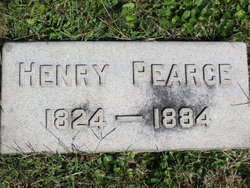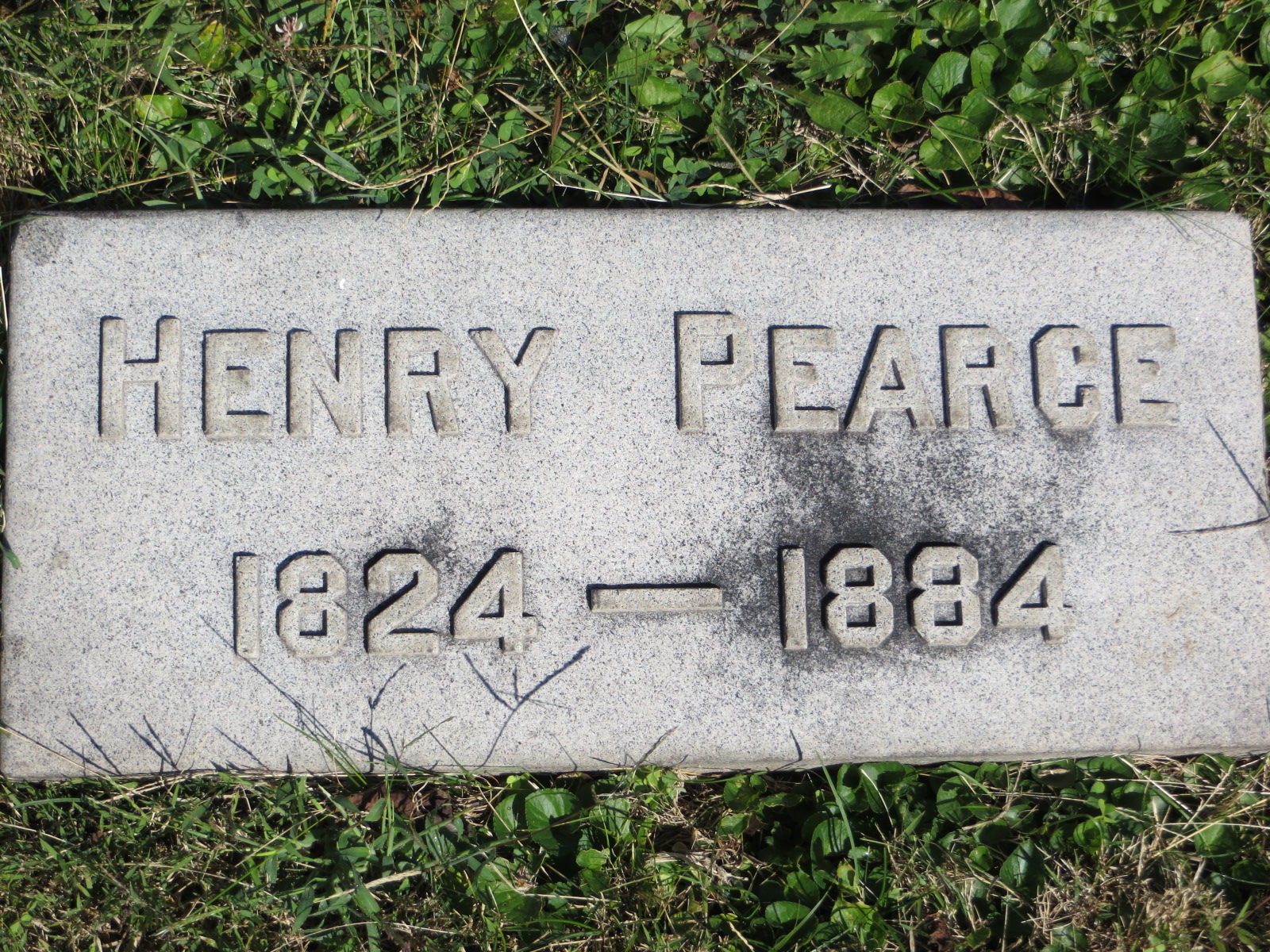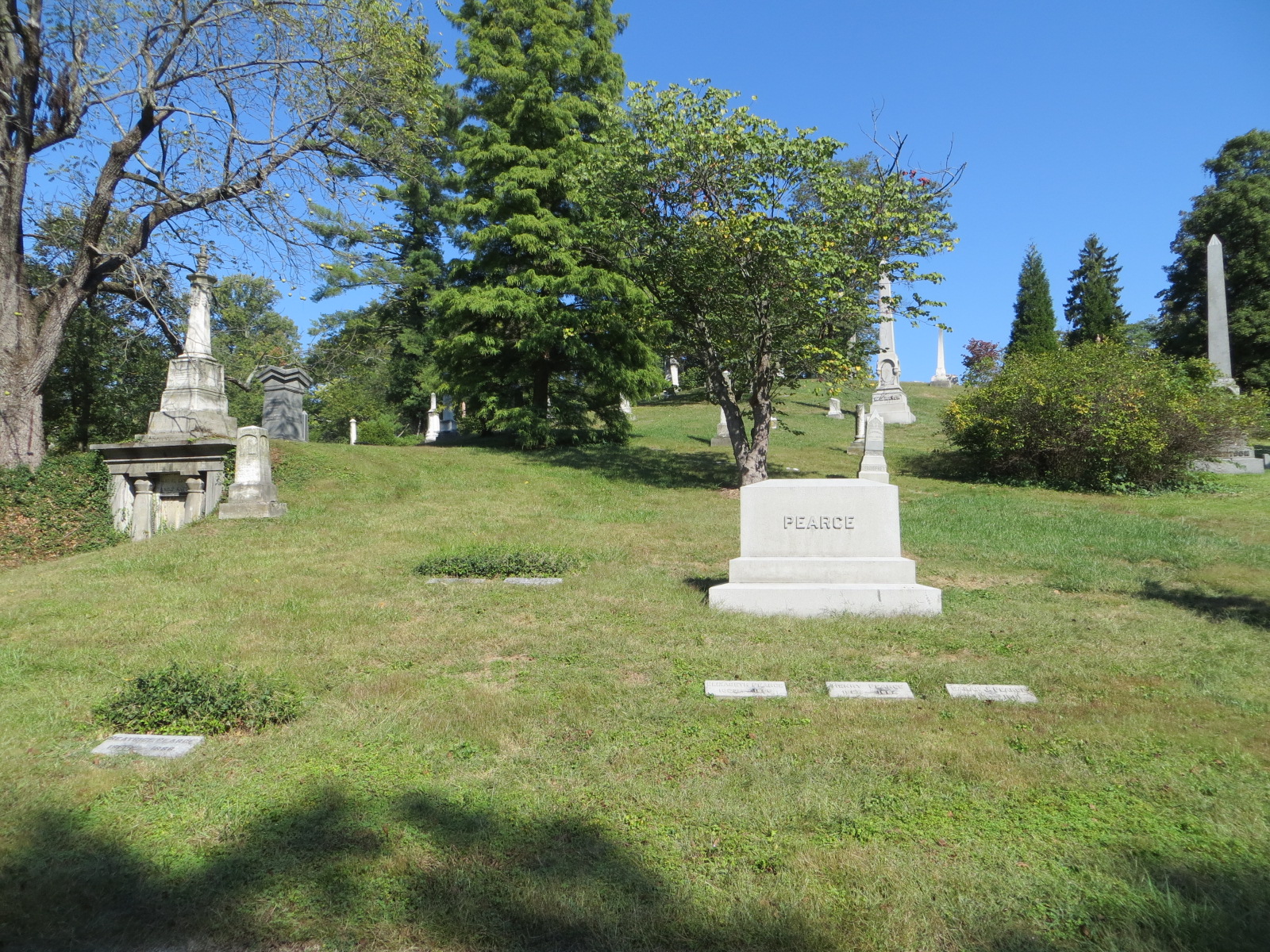He invested $800.00 from his inheritance. He invented the "spin-ginner"
which is in the Henry Ford Museum in Dearborn, Micigan/ Above from notes in the handwriting of Cornelia Atkins Espach and confirmed by Henry
Pearce Atkins, Jr,
HISTORY OF CINCINNATI AND HAMILTON COUNTY.-813 (Cincinnati, Hamilton County, Ohio USAIO:
S. B. NELSON & CO., PUBLISHERS ;
S. B. NELSON. J. M. RUNK.
1894.)
SOURCE: http://www.heritagepursuit.com/Hamilton/HamiltonIndex.htm
HENRY PEARCE was born January 9, 1824, in Cornwall, England, and died August 28, 1884, at Cincinnati, Hamilton County, Ohio USAio. His parents with their ten children came to the United States in 1831, and located in Cincinnati. In 1832 seven members of the family, including both parents, died of cholera. At the age of sixteen Henry was, taken into partnership with his brother, James, in the manufacture of cotton goods, a business that had been established here in 1817 by John and Henry Pearce, uncles of the members of the new firm " James and Henry Pearce." Subsequently the firm became Gould, Pearce & Co., and is now known as Henry Pearce's Sons. Henry Pearce was one of the water-works board of trustees for nine years, and was president of that board. He served two terms as a member of the city council from the old Sixth Ward, a Democratic stronghold, although he was a Republican. He was one of the originators and treasurer of the Sanitary Commission. He was also one of the originators of the Marine Hospital. He was one of the early members of the Young Men's Mercantile Library Association and a director of the Mechanics Institute. He was a member of the first board of the McMicken University. He was a most successful business man, a public-spirited citizen, and a consistent member of the Christian Church, with which he united at the age of twenty-one years, and with which he was actively identified until the time of his death. He was philanthropic, giving liberally at all times to public and private charities, and responding quickly to every cry of distress. He left an honored name and record as an inheritance to his children.
Lat/Long
39.172483
-84.524150 provided by Tom Perdiew
He invested $800.00 from his inheritance. He invented the "spin-ginner"
which is in the Henry Ford Museum in Dearborn, Micigan/ Above from notes in the handwriting of Cornelia Atkins Espach and confirmed by Henry
Pearce Atkins, Jr,
HISTORY OF CINCINNATI AND HAMILTON COUNTY.-813 (Cincinnati, Hamilton County, Ohio USAIO:
S. B. NELSON & CO., PUBLISHERS ;
S. B. NELSON. J. M. RUNK.
1894.)
SOURCE: http://www.heritagepursuit.com/Hamilton/HamiltonIndex.htm
HENRY PEARCE was born January 9, 1824, in Cornwall, England, and died August 28, 1884, at Cincinnati, Hamilton County, Ohio USAio. His parents with their ten children came to the United States in 1831, and located in Cincinnati. In 1832 seven members of the family, including both parents, died of cholera. At the age of sixteen Henry was, taken into partnership with his brother, James, in the manufacture of cotton goods, a business that had been established here in 1817 by John and Henry Pearce, uncles of the members of the new firm " James and Henry Pearce." Subsequently the firm became Gould, Pearce & Co., and is now known as Henry Pearce's Sons. Henry Pearce was one of the water-works board of trustees for nine years, and was president of that board. He served two terms as a member of the city council from the old Sixth Ward, a Democratic stronghold, although he was a Republican. He was one of the originators and treasurer of the Sanitary Commission. He was also one of the originators of the Marine Hospital. He was one of the early members of the Young Men's Mercantile Library Association and a director of the Mechanics Institute. He was a member of the first board of the McMicken University. He was a most successful business man, a public-spirited citizen, and a consistent member of the Christian Church, with which he united at the age of twenty-one years, and with which he was actively identified until the time of his death. He was philanthropic, giving liberally at all times to public and private charities, and responding quickly to every cry of distress. He left an honored name and record as an inheritance to his children.
Lat/Long
39.172483
-84.524150 provided by Tom Perdiew
Family Members
Advertisement
Advertisement
















